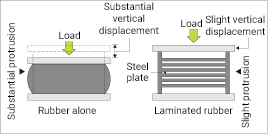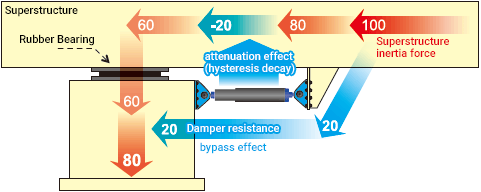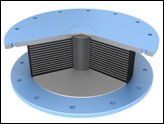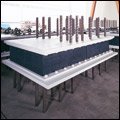This website uses cookies for a better browsing experience.
If you agree to the use of cookies, please click the "Agree" button.
Please refer to the Privacy Policy regarding the use of cookies on this site.
What is a vibration-controlled bridge?
A vibration-controlled bridge uses a vibration control device to suppress the displacement response of and the forces acting on structural members even in the event of a major earthquake.

Laminated rubber (isolator)
The ability to bear a load and absorb rotation
Rubber reinforced with steel plates firmly supports the bridge.
Compared to rubber alone, it is more rigid in the vertical direction and it provides stable support for a structure.

Bearing a load
An overview of vibration control technology
Diagram of a vibration-controlled bridge
Dampers have two major roles. These are “damping” and “redirection” of energy. When dampers are installed between the upper and lower structures, damping reduces the seismic inertia force transmitted to the lower structure and it suppresses the displacement of the upper structure. Redirection of energy allows the horizontal force on the lower structure to be adjusted as desired.







